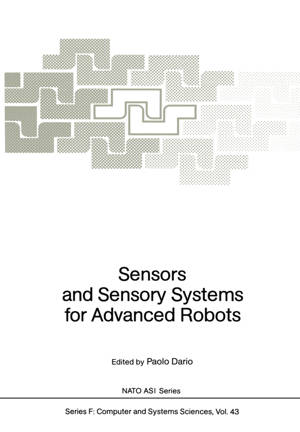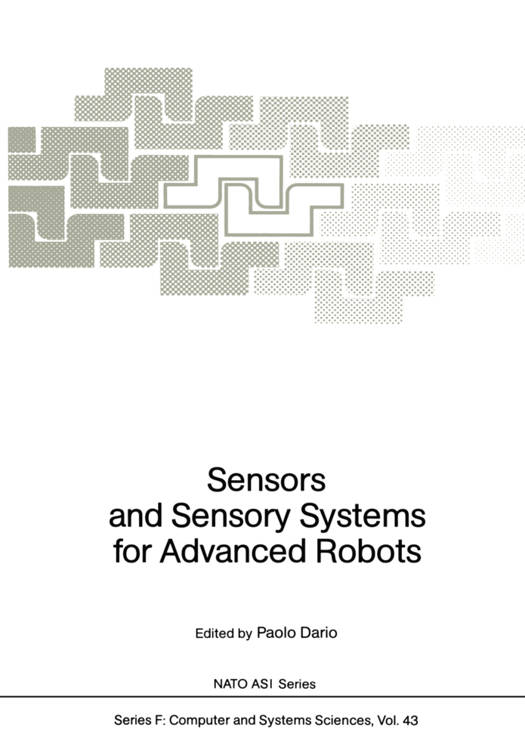
- Afhalen na 1 uur in een winkel met voorraad
- Gratis thuislevering in België vanaf € 30
- Ruim aanbod met 7 miljoen producten
- Afhalen na 1 uur in een winkel met voorraad
- Gratis thuislevering in België vanaf € 30
- Ruim aanbod met 7 miljoen producten
Zoeken
Sensors and Sensory Systems for Advanced Robots
€ 52,95
+ 105 punten
Omschrijving
This volume contains papers presented at the NATO Advanced Research Workshop (ARW) on "Sensors and Sensory Systems for Advanced Robots", which was held in Maratea, Italy, during the week Apri I 28 - May 3, 1986. Participants in the ARW, who came from eleven NATO and two non-NATO countries, represented an i nternat i ona I assortment of d i st i ngu i shed research centers in industry, government and academia. Purpose of the Workshop was to rev i ew the state of the art of sensing for advanced robots, to discuss basic concepts and new ideas on the use of sensors for robot control and to provide recommendations for future research in this area, There IS an almost unanimous consensus among invest i gators in the fie I d of robot i cs that the add i t i on of sensory capabi I ities represents the "natural" evolution of present industrial robots, as wei I as the necessary premise to the development of advanced robots for nonindustrial app I i cat ions. However, a number of conceptua I and techn i ca I problems sti I I challenge the practical implementation and widespread appl ication of sensor-based robot control techn i ques. Cruc i a I among those prob I ems is the ava i lab iii ty of adequate sensors.
Specificaties
Betrokkenen
- Uitgeverij:
Inhoud
- Aantal bladzijden:
- 600
- Taal:
- Engels
- Reeks:
- Reeksnummer:
- nr. 43
Eigenschappen
- Productcode (EAN):
- 9783642834127
- Verschijningsdatum:
- 7/09/2012
- Uitvoering:
- Paperback
- Formaat:
- Trade paperback (VS)
- Afmetingen:
- 170 mm x 244 mm
- Gewicht:
- 966 g

Alleen bij Standaard Boekhandel
+ 105 punten op je klantenkaart van Standaard Boekhandel
Beoordelingen
We publiceren alleen reviews die voldoen aan de voorwaarden voor reviews. Bekijk onze voorwaarden voor reviews.










